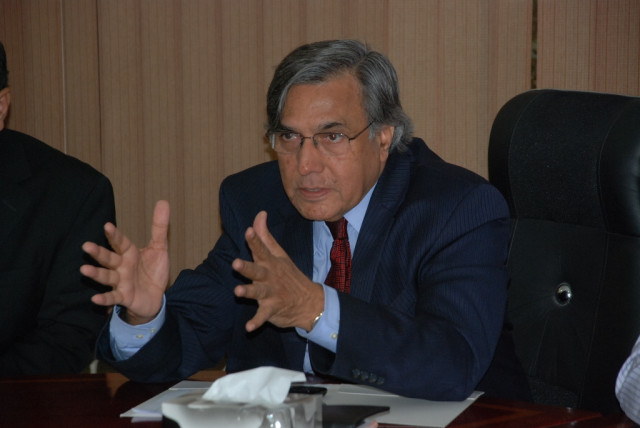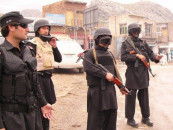Participatory federalism: Call for strengthening governance at provincial, local levels
Three-day conference to explore post-devolution governance issues.

Vice-Chancellor of the University of Gujrat. PHOTO: FILE
After years of struggle, Pakistan seems to be getting the hang of democracy and federalism. But more efforts are required to strengthen governance at the provincial and local levels, parliamentarians, academics and politicians said at the opening ceremony of a three-day international conference on Wednesday.
The conference on “Participatory Federalism and Decentralisations: From Framework to Functionality,” was organised by the United Nations Development Programme (UNDP).
The conference aims to promote a conversation on decentralized governance in the context of the 18th Amendment and to facilitate public dialogue on federalism, said UNDP Pakistan Country Director Marc-Andre Franche. It also marked the launch of a five-year UNDP project, he said.

The “Strengthening Participatory Federalism and Decentralisation” project aims to encourage academic discourse on federalism and to support provincial governments in province-specific problem areas such as rules of business or local governance laws, he added.
“A lot needs to be done,” Franche said. “One of our biggest objectives is that people need to know about the 18th Amendment and for students and researchers to study federalism and decentralisation.”
Franche said the input from stakeholders and academia at the conference will define the strategy of the programme for the next five years.
The 18th Amendment, which was passed in 2010, granted more autonomy to the provinces. But provincial governments have so far appeared to struggle with new responsibilities handed down from the federal government, mostly because of limited capacity and lack of transitional mechanisms.

Taj Haider, a Pakistan People’s Party politician and former senator, said challenges to federalism remain but there are positive signs.
Both Haider and the ceremony’s chief guest, Minister for Inter-Provincial Coordination Riaz Hussain Pirzada, praised the 2006 Charter of Democracy as a vital step toward a strong democracy.
Pirzada said the charter led to the 18th Amendment which in turn has helped bridge the “chronic disconnect” between federal and provincial governments to “a certain extent.”
“Our government will continue to work towards the improvement of inter-provincial coordination and governance,” he said.
The conference will bring together experts from Pakistan and 15 other countries to talk about issues related to different aspects of federalism, local governance and decentralisation.
The conference is focusing on the contribution of academia in highlighting priority areas for management of post-18th Amendment transition in Pakistan.
Dr Nizamuddin, chair of the conference organising committee and chair of the Inter-University Consortium for Promotion of Social Sciences (IUCPSS), said “Researchers should go from village to village, conduct research about social issues and raise political awareness about local governance among communities.”
IUCPSS and the Higher Education Commission have partnered with UNDP in organising the conference.
Nizamuddin, who is also the Vice-Chancellor of the University of Gujrat, said provincial governments should also provide technical assistance to the local bodies and help with capacity building otherwise grassroots governance would not improve.
Published in The Express Tribune, September 26th, 2013.



















COMMENTS
Comments are moderated and generally will be posted if they are on-topic and not abusive.
For more information, please see our Comments FAQ